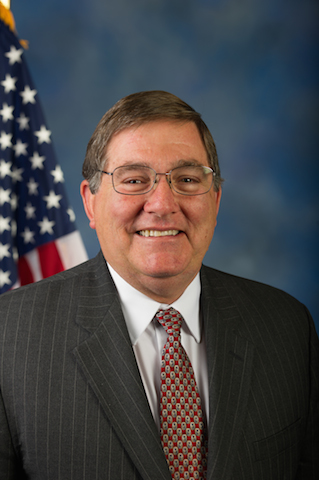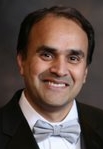News
A Middleware Dose: the Antidote to Healthcare’s EHR Interoperability Bug
 Despite wide penetration of EHR's in hospitals, clinics and physician offices, access to patient information between systems continues to plaque our healthcare system. From a physician's perspective, we have a duty to provide the best care to addresses our patients’ health needs with the least possible risks of adverse events...Zoeticx, a developer of EHR middleware, has developed such a platform that has already been demonstrated to go far beyond the limitations present in EHR’s. Adding additional functionality to patient data has been accomplished with a seamless connection to disparate EHR systems. An additional benefit of this technology is that front-line providers no longer need to worry about accessing many different systems to manually utilize the data for patient care.
Despite wide penetration of EHR's in hospitals, clinics and physician offices, access to patient information between systems continues to plaque our healthcare system. From a physician's perspective, we have a duty to provide the best care to addresses our patients’ health needs with the least possible risks of adverse events...Zoeticx, a developer of EHR middleware, has developed such a platform that has already been demonstrated to go far beyond the limitations present in EHR’s. Adding additional functionality to patient data has been accomplished with a seamless connection to disparate EHR systems. An additional benefit of this technology is that front-line providers no longer need to worry about accessing many different systems to manually utilize the data for patient care.
- 1 comment
- News
Burgess Bill Addresses Interoperability, the Leading Health IT Issue in the US
 Health care reformers around the country should be jumping up to thank Representative Michael C. Burgess (R-Texas), an MD who is working with his staff to write a bill to promote Health IT interoperability. Readers of Open Health News probably know that interoperability--in simple terms, the ability of any authorized user to read a medical record from any source--has emerged as one of the two top burning issues of health IT, the other one being the lack of usability of proprietary/lock-in electronic health records (EHRs).
Health care reformers around the country should be jumping up to thank Representative Michael C. Burgess (R-Texas), an MD who is working with his staff to write a bill to promote Health IT interoperability. Readers of Open Health News probably know that interoperability--in simple terms, the ability of any authorized user to read a medical record from any source--has emerged as one of the two top burning issues of health IT, the other one being the lack of usability of proprietary/lock-in electronic health records (EHRs).
- 1 comment
- News
Rep. Burgess' Office Releases Draft Interoperability Bill for Discussion
 The office of Rep. Michael Burgess, MD (R-TX) released a draft of the interoperability bill that they have been working for the past several months on Friday. Rep. Burgess, one of the few physicians in Congress, has been working very hard with his staff to come up with legislation that can fix the current Health IT "lock-in" crisis. This is a bipartisan effort that has full backing from the top leadership in Congress. The staff is seeking input from the Health IT community on the draft bill. Burgess's office will take comments on the draft through March 13. Rep. Burgess' staff was kind enough to provide Open Health News with a copy of the draft legislation. We have posted the entire draft bill as is below and will be writing some our thoughts over the next few days.
The office of Rep. Michael Burgess, MD (R-TX) released a draft of the interoperability bill that they have been working for the past several months on Friday. Rep. Burgess, one of the few physicians in Congress, has been working very hard with his staff to come up with legislation that can fix the current Health IT "lock-in" crisis. This is a bipartisan effort that has full backing from the top leadership in Congress. The staff is seeking input from the Health IT community on the draft bill. Burgess's office will take comments on the draft through March 13. Rep. Burgess' staff was kind enough to provide Open Health News with a copy of the draft legislation. We have posted the entire draft bill as is below and will be writing some our thoughts over the next few days.
- 1 comment
- News
Introducing OpenClinica Participate
 I’d like to introduce our upcoming product, OpenClinica Participate, a tool tightly integrated with OpenClinica for engaging patients and collecting data directly from study participants. If you took OpenClinica's recent survey, you got a glimpse of what your forms for patient-reported outcomes could look like in OpenClinica Participate. Driven by a powerful forms engine based on proven open-source technology, the participant forms are simple, dynamic, mobile-focused, and platform-independent. But it’s about a lot more than mobile-friendly forms.
I’d like to introduce our upcoming product, OpenClinica Participate, a tool tightly integrated with OpenClinica for engaging patients and collecting data directly from study participants. If you took OpenClinica's recent survey, you got a glimpse of what your forms for patient-reported outcomes could look like in OpenClinica Participate. Driven by a powerful forms engine based on proven open-source technology, the participant forms are simple, dynamic, mobile-focused, and platform-independent. But it’s about a lot more than mobile-friendly forms.
- Login to post comments
- News
3D Printers Become Viable Tools In Healthcare
 3D printing has received a lot of attention for its applications in the health sector, from helping Bespoke prosthetics change patients' lives to enabling huge strides in stem cell research. And with desktop 3D printers becoming increasingly affordable and reliable—and open source software such as Cura being versatile, easy to use, and free to update—barriers to further 3D printing innovation are quickly disappearing. What was once only available to well-funded practitioners has now become genuinely accessible to every patient, nurse, doctor, surgeon, hospital, and teaching facility...
3D printing has received a lot of attention for its applications in the health sector, from helping Bespoke prosthetics change patients' lives to enabling huge strides in stem cell research. And with desktop 3D printers becoming increasingly affordable and reliable—and open source software such as Cura being versatile, easy to use, and free to update—barriers to further 3D printing innovation are quickly disappearing. What was once only available to well-funded practitioners has now become genuinely accessible to every patient, nurse, doctor, surgeon, hospital, and teaching facility...
- Login to post comments
- News
6 Ways Physicians can Free Patient Records
 A certain doctor's practice had been using EHR software for many years; they had been paying a pretty penny too. For their own reasons they wanted to change their software. They were going to brave the uncertain and scary world of transitioning their current EHR to another one. A round of applause for that decision alone, for many practices tolerate their EHR system only because they have paid a lot of money for it and have spent a lot of time training on it. They just don’t want to go through the pain all over again. This works out in favor of most EHR system vendors, doesn't it? Make the process so painful and costly that the physicians would not want to go through it again, thereby locking the caregivers into an eternal commitment.
A certain doctor's practice had been using EHR software for many years; they had been paying a pretty penny too. For their own reasons they wanted to change their software. They were going to brave the uncertain and scary world of transitioning their current EHR to another one. A round of applause for that decision alone, for many practices tolerate their EHR system only because they have paid a lot of money for it and have spent a lot of time training on it. They just don’t want to go through the pain all over again. This works out in favor of most EHR system vendors, doesn't it? Make the process so painful and costly that the physicians would not want to go through it again, thereby locking the caregivers into an eternal commitment.
- Login to post comments
- Feature Story
Why do EHR Firms Own Patient Data When Other Software Vendors Don't?
 There's a healthy debate going on about healthcare data interoperability and I think the more we discuss it, the better off we'll be. It's absolutely crucial that all healthcare information systems be able to talk to each other in a way that is useful to both physicians/clinicians as well as patients. The only way to have truly interoperable systems is to have free (but safe and secure) data interchange and exchange requires access rights and an understanding of ownership rules. One part of the discussion that many vendors of electronic health records (EHRs), a large portion of the health IT ecosystem, don't want to have is about the ownership of patient data stored in "their" EHR systems.
There's a healthy debate going on about healthcare data interoperability and I think the more we discuss it, the better off we'll be. It's absolutely crucial that all healthcare information systems be able to talk to each other in a way that is useful to both physicians/clinicians as well as patients. The only way to have truly interoperable systems is to have free (but safe and secure) data interchange and exchange requires access rights and an understanding of ownership rules. One part of the discussion that many vendors of electronic health records (EHRs), a large portion of the health IT ecosystem, don't want to have is about the ownership of patient data stored in "their" EHR systems.
- Login to post comments
- Feature Story
The Future of Open Source Is a Better User Experience
 Each year, my favorite open source software survey asks "Where is the future of open source taking us?" I like to try to think far into the future. Not next year or the next five, but where can the horizon of open source and its unique mix of collaborative ideals and communal practices take us? One such "out there" aspect of open source, that I think will eventually come to fruition, is that of UX. When I talk of UX, I mean User eXperience. It is a parent or superset of UI, the User Interface, or what we see. UX handles so much more than UI. The entire session that a human has with a system or piece of software is considered in UX...
Each year, my favorite open source software survey asks "Where is the future of open source taking us?" I like to try to think far into the future. Not next year or the next five, but where can the horizon of open source and its unique mix of collaborative ideals and communal practices take us? One such "out there" aspect of open source, that I think will eventually come to fruition, is that of UX. When I talk of UX, I mean User eXperience. It is a parent or superset of UI, the User Interface, or what we see. UX handles so much more than UI. The entire session that a human has with a system or piece of software is considered in UX...
- 1 comment
- News
Halamka: What is the Optimal Future Role for ONC?
 As Meaningful Use winds down and incentive dollars are fully spent, what is the optimal role for ONC going forward? Some pundits have suggested that ONC step aside and return all aspects of HIT policy and technology to the private sector. Others have suggested top down command and control of HIT including centralized governance to ensure interoperability. Harmony is when all parties feel equally good about the path forward. Compromise is when everyone leaves the table equally unhappy. Here’s my view about the future of ONC that includes points from both sides.
As Meaningful Use winds down and incentive dollars are fully spent, what is the optimal role for ONC going forward? Some pundits have suggested that ONC step aside and return all aspects of HIT policy and technology to the private sector. Others have suggested top down command and control of HIT including centralized governance to ensure interoperability. Harmony is when all parties feel equally good about the path forward. Compromise is when everyone leaves the table equally unhappy. Here’s my view about the future of ONC that includes points from both sides.
- Login to post comments
- News
Belgian Hospitals use Open Source Imaging Tool
 Two hospitals in the Belgian city of Liège are using Orthanc to exchange their medical imaging information. Three more hospitals are considering to start using this free and open source software solution for the management of their medical images. This lightweight system, developed at the University Hospital of Liège, helps hospitals to facilitate the exchange between clinical departments, specialists and hospitals. The software allows them to archive and retrieve images, while offering scalability and flexibility.
Two hospitals in the Belgian city of Liège are using Orthanc to exchange their medical imaging information. Three more hospitals are considering to start using this free and open source software solution for the management of their medical images. This lightweight system, developed at the University Hospital of Liège, helps hospitals to facilitate the exchange between clinical departments, specialists and hospitals. The software allows them to archive and retrieve images, while offering scalability and flexibility.
- Login to post comments
- News